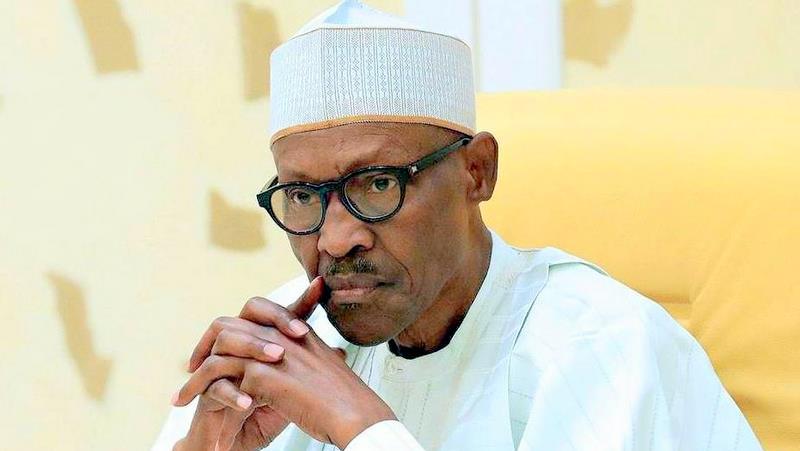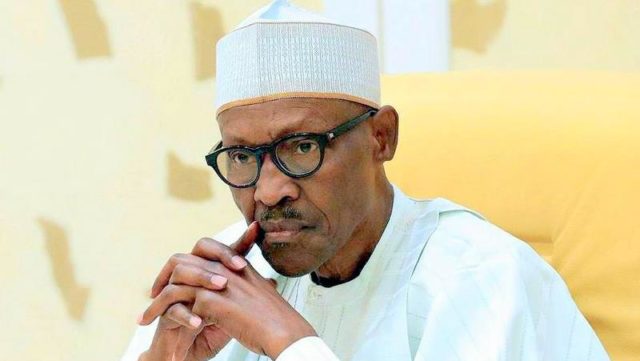 President Muhammadu Buhari urged the World Bank to prioritise its developmental programmes across the northern parts of Nigeria, the bank’s President Jim Yong Kim said on Thursday.
President Muhammadu Buhari urged the World Bank to prioritise its developmental programmes across the northern parts of Nigeria, the bank’s President Jim Yong Kim said on Thursday.
At a press briefing on the sidelines of the ongoing World Bank-IMF annual meetings in Washington, D.C., Mr. Kim said his organisation has largely complied with Mr. Buhari’s request, but also experienced some challenges in the process.
“In my very first meeting with President Buhari he said specifically that he would like us to shift our focus to the northern regions of Nigeria and we’ve done that,” said Mr. Kim, who has led the World Bank since 2012.
“Now, it has been very difficult. The work there has been very, very difficult,” he added.
Mr. Kim was responding to a Nigerian reporter’s question on how the bank has supported Nigeria’s northeast, plagued by the Boko Haram insurgency.
A transcript of Mr. Kim’s press briefing was published by the World Bank on Thursday.
Presidential spokespersons, Femi Adesina and Garba Shehu, did not immediately respond to PREMIUM TIMES requests on whether the presidency had clarifications about the exchanges between Messrs. Buhari and Kim.
Details of Mr. Buhari’s first meeting referenced by Mr. Kim could not be immediately retrieved. But the comments could bolster Mr. Buhari’s critics, who accuse the president of being sectional.
In 2015, Mr. Buhari was ridiculed for telling a live audience during a visit to Washington that the regions that overwhelmingly voted for him should expect more from his government than the one that did not.
“The constituents, for example, gave me 97% [of the vote] cannot in all honesty be treated on some issues with constituencies that gave me 5%,” Mr. Buhari said when he was asked about his administration’s policy of inclusiveness at the United States Institute of Peace July 22, 2015.
“I think these are political reality,” he added.
Ayo Akanji, a media consultant for the Buhari administration, said the president’s request to Mr. Kim was centered on canvassing the bank’s support for Boko Haram victims and other humanitarian issues in the region, and not asking the bank to ramp up its developmental policies in the north at the expense of the south.
“The northeast has been badly hit by Boko Haram and more than two million displaced,” Mr. Akanji added. “That’s why President Buhari has been going everywhere abroad to seek support to rebuild a region that has been totally ravaged.”
“The president could not have asked the World Bank to abandon the southern parts of the country,” Mr. Akanji added. “He only saw an urgency in the need for displaced farmers to return to farm and displaced kids to return to school.”
At his press briefing, Mr. Kim said a rebound of crude oil prices would help improve the economic situation in the north, but urged Mr. Buhari to focus more on other areas that are more critical to sustainable development, like health and education.
“So, yes focus on the north, hope that as commodity prices stabilise, oil prices come back up and the economy will grow a bit more but very, very much focus on what the drivers of growth in the future will be,” Mr. Kim said.
BELOW IS FULL TRANSCRIPT OF MR KIM’S COMMENT AS PUBLISHED ON THE WORLD BANK’s WEBSITE.
QUESTION: My name is Obinna Chima from Thisday Newspapers in Nigeria and The Rise TV in Africa. Mr. Kim, what can you tell us about Nigeria, specifically your intervention in the power sector, and also, what is the World Bank doing to support those ravaged in the northeastern part of Nigeria by the Boko Haram terrorists? Thank you.
DR. KIM: You know, in my very first meeting with President Buhari he said, specifically, that he would like us to shift our focus to the northern regions of Nigeria, and we’ve done that. Now, it’s been very difficult. The work there has been very, very difficult. I think Nigeria, of course, has suffered from the drop in the oil prices. I think things are just now getting better, but the conversation we need to have with Nigeria, I think, is in many ways related to the theme that I brought to the table just this past week, which is investment in human capital. The percentage of GDP that Nigeria spends on healthcare is less than one percent. Despite the fact that there is so much turbulence in the northern part of the country and there is the hit that was taken from the drop in the oil prices, Nigeria has to think ahead. And investing in its people, investing in the things that will allow Nigeria to be a thriving, rapidly growing economy in the future is what the country has to focus on right now. It can’t rely just on oil prices going back up. It has to think: what are going to be the sources of growth in the future for Nigeria, in what will surely be a more digitalized economy?
One of the real questions that we all have is our traditional notions of economic growth— which are agriculture, to light industry, to heavy industry— how many countries in Africa will actually experience that, and do we need to really think about another kind of path to economic growth that’s very focused on a small- to medium-enterprises and entrepreneurship as they have in other parts of the world? I think we still don’t know that. But the one thing we know, the one thing we know, is that better health outcomes, better education outcomes, will be critical no matter what the global economy looks like. So, yes focus on the north, hope that as commodity prices stabilize, oil prices come back up and the economy will grow a bit more, but very, very much focus on what the drivers of growth in the future will be.
Courtesy: PREMIUM TIMES







